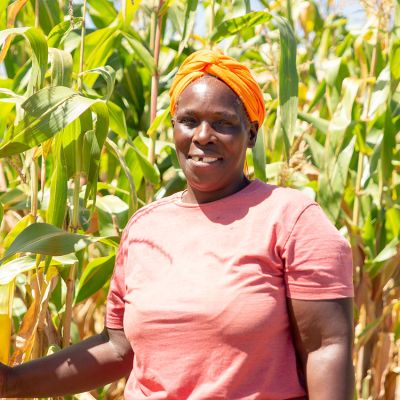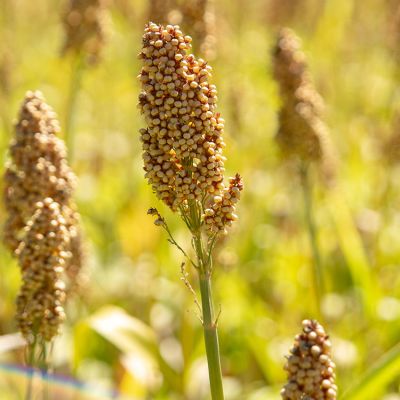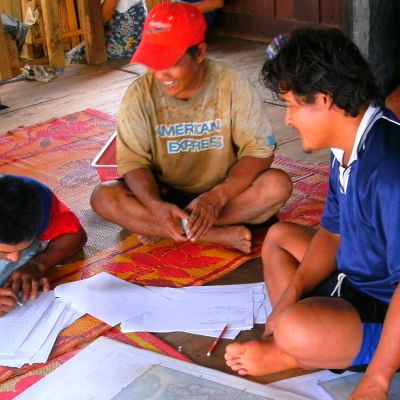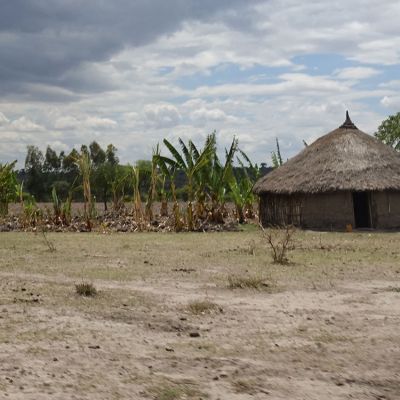Written by Lai Ka Chun (Senior Programme Officer)
‘Around three years ago, my fields looked just like this,’ said James Shawa, a farmer from Zimbabwe, Southern Africa, pointing to a neighbouring cornfield with withered, yellow leaves. For days, he worried that he would not have a good harvest. However, when he adopted a new farming method, his corn grew after hard work and dedication. The crop James had wished for finally arrived.
‘We use the resources that the Lord has given us, and we receive His blessings,’ James said while putting freshly picked corn onto the firewood. Through the smoke, James and his children smiled.
Nearly 70% of the African population rely on farming for a living. A poor harvest reduces the farmers’ income significantly and may push them to the brink of famine. With more extreme weather events under the climate crisis, the scope and scale of these situations have become ever more frequent.
‘Breadbasket of Africa’ No More
According to a study published last year in the Nature Climate Change journal, human-induced climate change has seriously impacted global food production. Since the 1960s, global agricultural productivity has dropped by more than 20 per cent compared to a context without climate change, a decrease equivalent to the total increase of agricultural yield for the past seven years. Studies have also shown that although technology has improved the efficiency of agricultural production, this has not kept up with the speed of environmental damage when the impacts of climate change are factored in.
Climate change hurts agricultural production most in developing countries located in the temperate zones, including Zimbabwe. Zimbabwe was once known as the breadbasket of Africa and was a prominent exporter of wheat and corn. Today, various political factors have led to the collapse of its economy; citizens have had to face food crises. In rural areas, tens of thousands of citizens face food shortages, insufficient rain, droughts, storms and unstable weather, impacting their agricultural harvests.
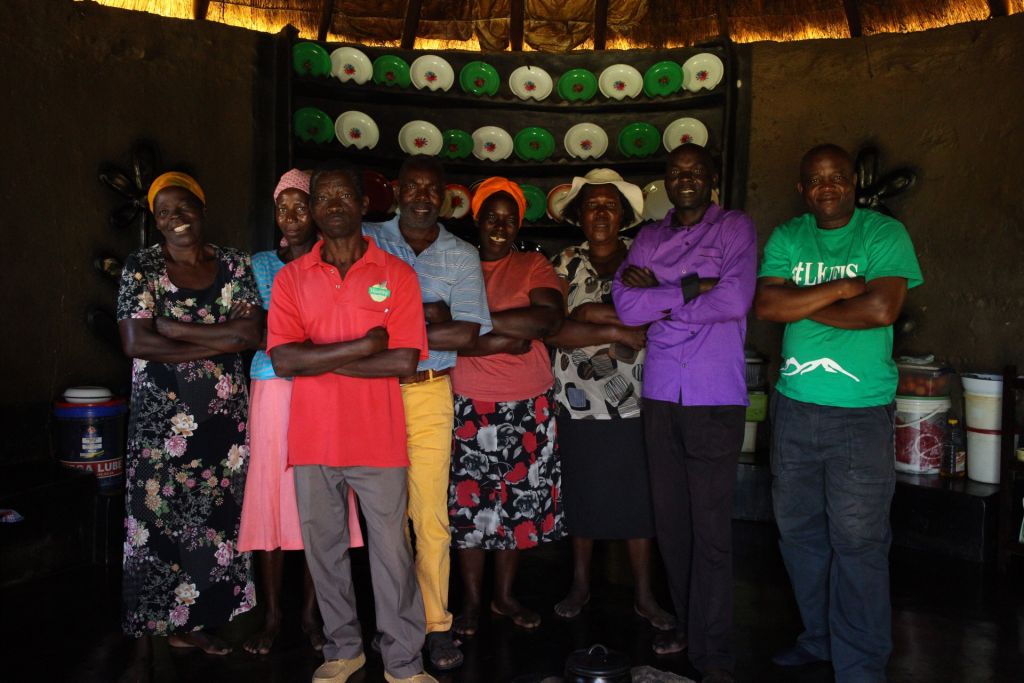
Furthermore, most farmers in Zimbabwe own less than two hectares of arable land. Without solutions to combat climate change, no matter how hard they work, farmers will not be able to use their land to earn a living.
CEDAR has supported its partner Foundations For Farming in Zimbabwe for many years. This organisation teaches farmers to respect nature and use conservative farming techniques which fit the order created by the Lord to allow them to earn their living sustainably. Zimbabwe’s government department responsible for agriculture and education has recognised the organisation’s efforts.
In recent years, the organisation has also cooperated with the Food and Agriculture Organisation of the United Nations in training government personnel to help promote the farming technique ‘Pfumvudza’ (meaning new season in Shona, the mother tongue of 75% of the people of Zimbabwe) in various regions. They hope to cultivate a new national ‘agricultural revolution’, which will ensure every farmer has enough to eat.
Pfumvudza is a farming technique based around conservation; it is distinctive in that it requires less land and human labour but produces more crops. In the past, most farmers in Zimbabwe believed that larger land size and mechanised farming were needed to increase food production. However, these methods were unsustainable, as the demands for labour and money were too much for local farmers. In addition, these techniques ignored the fundamental principle of farming by degrading the quality of the soil, leading to results that were completely opposite to the farmers’ initial intentions.
Less Land, Richer Yield
Under the Pfumvudza farming method, each farmer (with an average family of six per household) would only require 16 x 31 metres of farmland. Under careful management taught by CEDAR’s partner, the number of crops produced by the land would enable an entire family to become self-sufficient and support the family’s financial expenses. This field may be only one-tenth of the size of the land used by local farmers, but it can yield ten times as many crops.
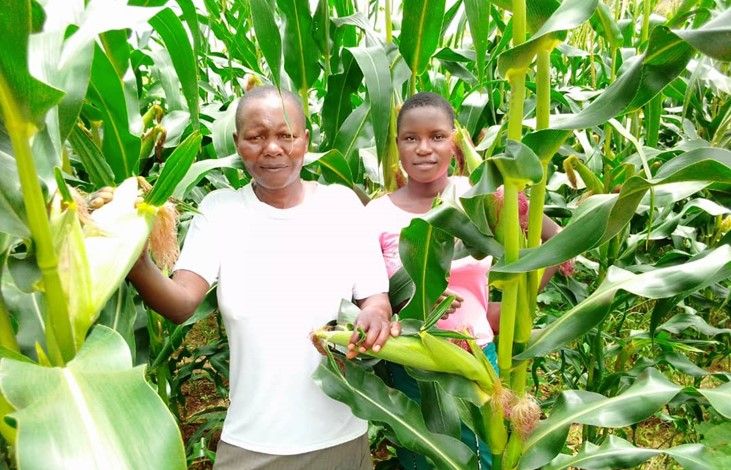
With a smaller field, farming preparation becomes more manageable. The plants are evenly distributed by our partner’s strict horizontal and vertical measurements. Farmers use seeds and basal fertiliser prepared by our partner and farm according to four important principles – ‘on time’ (plan ahead, prepare well, farm according to the season), ‘adhere to high standards’ (perform each procedure with full effort and with honesty), ‘no waste’ (to not waste soil, water, sunshine or other resources given by the Lord, and to cherish time and opportunities), and ‘to always be happy’ (to have a grateful heart, not lay the blame on others, to faithfully abide by the previous principles while depending on the Lord). In the process, among other things, farmers remove weeds, compost, sow seeds, use dead leaves or grass or other agricultural waste to create an overlay, and add fertiliser to their crops.
During the process, farmers do not use a plough on the soil. Apart from preserving the soil structure, this also allows the soil to become fertile and rich because of nutrients in the organic overlay.
After months of practice, farmers have seen the results of the Pfumvudza farming method. Many farmers, like James Shawa, have eliminated the risk of food shortages and have been able to support their families. They were also able to self-sustain by selling their agricultural products to meet their family’s needs, including sending their children to school.
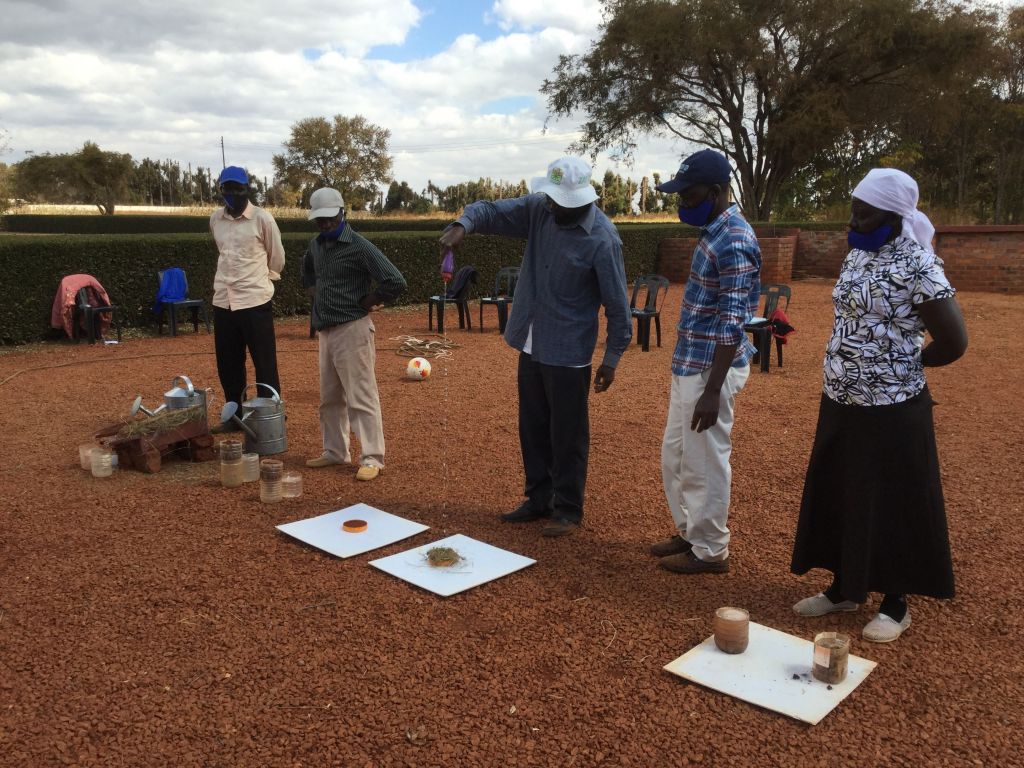
On-site Training. Be a Good Guardian
We are delighted to see the results of Pfumvudza and the strong support it has gained from the Zimbabwean government. However, this farming method emphasises the continuous renewal of farming mentality, techniques, and ways of thought; thus, on-site training and experience-sharing within communities are vital.
In view of this, since 2019, CEDAR has supported the partner to provide agricultural training to impoverished communities in Mashonaland Central. It will extend the communities’ training provision to some communities in Mashonaland East. Some communities contain more sandy soil; the soil becomes dry and infertile in the dry season, and nutrients are easily washed away. After the farmers in these communities implement conservative farming methods, they will strengthen the soil structure and improve its quality, thus increasing their yields.
With CEDAR’s support, farmers benefiting from conservation farming have become facilitators within their communities. They have provided theoretical and practical training to 15 locations in their communities and set up Pfumvudza model farms to allow trainees to practice these methods.
They also teach trainees financial management skills and use spiritual platforms to share how they can be good guardians of the Lord’s creations on earth. From 2020-to 2021, more than 1,000 people were benefitted from CEDAR’s program.
The road to ending hunger is long, but as the communities in Zimbabwe, steps have been taken, and communities have been rising to solve the issue of food shortages.
(Some photos are provided by CEDAR’s partner)
ARTICLES OF THIS ISSUE
Written by Lai Ka Chun (Senior Programme Officer) ‘Around three years ago, my fields looked just like this,’ said Jam…
Written by Ness Ma (Communications Officer) Caring for the created world is a significant and complex issue. We may ha…
Written by Ness Ma (Communications Officer) Many tribes live at the country’s border in Northern Thailand, mostly farm…
Written by Wendy Fung (Church pastor) 5Listen, my dear brothers and sisters: Has not God chosen those who are poor in …



